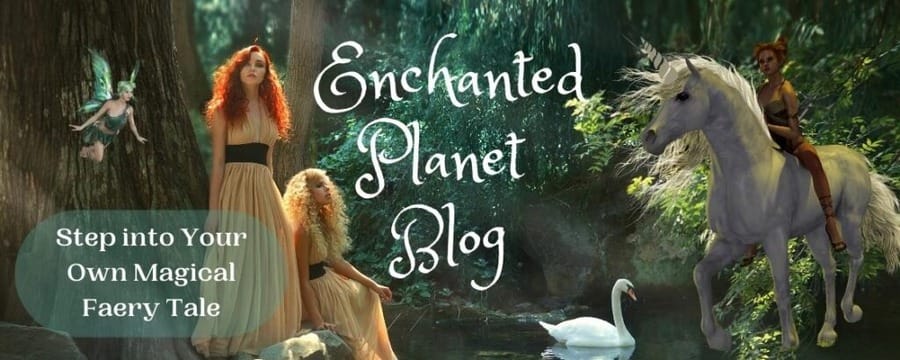
Who Is Sovereignty?
Did you know that Sovereignty is an ancient Celtic name for the goddess of the land? A king would become sovereign only when he ritually married the goddess.
 Sovereignty, in Celtic tradition, is much more than a political term indicating rule or leadership. It is a complex relationship between spiritual, ecological, and social dimensions.
Sovereignty, in Celtic tradition, is much more than a political term indicating rule or leadership. It is a complex relationship between spiritual, ecological, and social dimensions.
A central theme across the varied Celtic cultures was the understanding of sovereignty as a sacred trust, deeply rooted in the wellbeing of the land and its people.
In many Celtic traditions, Sovereignty was a goddess who bestowed the right to rule upon the king.
This divine female figure was not merely symbolic. She represented the land itself, the nurturing Earth that provides for its people. The king was expected to rule with wisdom and fairness, ensuring the land’s prosperity and its people’s welfare.
In short, he ruled in service of Sovereignty, the goddess. If the king failed in these duties, it was believed that the goddess could withdraw her favor, leading to the downfall of the ruler and desolation of the land.
 Sovereignty and Celtic Spirituality
Sovereignty and Celtic Spirituality
The embodiment of Sovereignty as a goddess further emphasizes the interconnectedness of all life — a fundamental belief of Celtic spirituality represented by Celtic knot patterns. The prosperity of the land, the people, and the king were all interconnected.
This holistic approach meant that sovereignty was not just about power but also about responsibility and balance. The king, as the sovereign ruler, was the land’s guardian and his actions directly impacted the land’s wellbeing and, by extension, the prosperity of the people.
Furthermore, sovereignty in the Celtic context extended to personal realms. Each individual held sovereignty over their own lives and responsibility for their actions and their consequences. This aspect underscores the importance of personal integrity and honor in Celtic society.
Sovereignty in the Modern World
The Celtic concept of sovereignty has profound implications even today. It suggests a model of leadership where rulers are intimately connected to the land they govern and are responsible for its care. This perspective places an emphasis on sustainable stewardship, where leaders ensure the health and wellbeing of the land for future generations.
Furthermore, it encourages each individual to claim personal sovereignty, recognizing our roles and responsibilities within our communities and ecosystems. By embracing this concept, we acknowledge that our actions matter and that we each have a part to play in shaping our world.
 In conclusion, the Celtic concept of sovereignty offers a rich and multi-layered understanding of leadership and responsibility. It’s a concept rooted in respect for the land, communal wellbeing, and personal integrity.
In conclusion, the Celtic concept of sovereignty offers a rich and multi-layered understanding of leadership and responsibility. It’s a concept rooted in respect for the land, communal wellbeing, and personal integrity.
It is time for all people of Earth to embrace our personal sovereignty in honor of the goddess of the land. Together we can restore our world to harmony and balance as we welcome in the New Earth.
By studying and reflecting on the concept of sovereignty and honoring the goddess of the land, we not only gain insight into the Celtic worldview, but also valuable perspectives that can inform our actions and leadership styles today.
Wouldn’t it be wonderful if modern day rulers and presidents were held to the same standard as the Celtic kings of old? What a wonderful world that would be!
More on the Celtic Sovereignty Goddess:
https://apollosraven.wordpress.com/2018/06/11/celtic-sovereignty-goddess/
The concept of the sovereignty goddess seems to originate in the medieval Irish Echtra Mac nEchach (adventures of the sons of Eochaid). It tells of a loathly woman who offers young men water in exchange for a kiss (a common theme in Celtic mythology). Only Niall is willing to kiss her, at which point the woman becomes beautiful and utters the following verse:
King of Tara, I am the Sovereignty.
I will tell you its great benefit.
[It will belong] to your descendants forever, above every kindred;
that is the true reason for which I speak.

New Earth Ambassador — Faery Emissary
Sharing Health, Wealth & Faery Magic to Uplift the World!
What I love best is activating the New Earth reality — a reality of harmony, cooperation and prosperity for all. I call it the New Camelot!
When I discovered how to move beyond the challenges of living in the 3D Matrix, I realized I had found something far more valuable than money or worldly success.
Since then I’ve been creating courses, workshops and blog posts to support people like you in your quest for vibrant health, abundant wealth and the uplifting magic of the faery realm.
I am passionate about protecting Nature, teaching people about healthy whole plant foods, artistic creativity, connecting with the faery realm, Celtic and Arthurian lore, writing, painting, family and gardening.